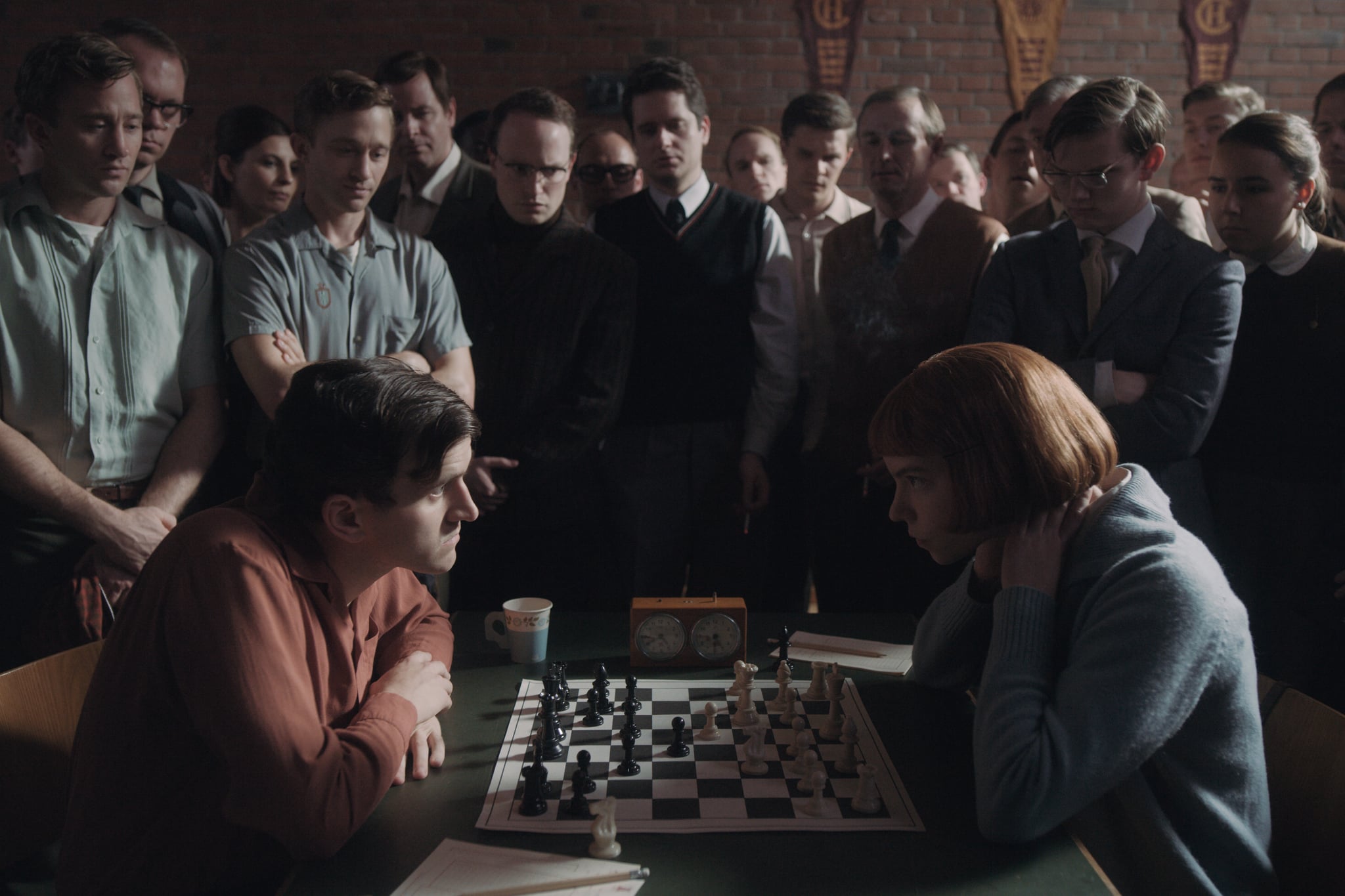
Anya Taylor-Joy has made a name for herself with horror films like The Witch and Split, but she’s sure to gain even more critical acclaim for her role on Netflix’s The Queen’s Gambit, which premieres on Oct. 23. The miniseries — which is based on Walter Tevis’s 1983 novel of the same name — follows a chess prodigy named Beth from the age of eight to 22 as she sets out to become a grandmaster in chess. From the intriguing plot to the incredible acting, I was hooked by the very first episode, and it seems like the feeling was mutual for Taylor-Joy. In fact, she knew she had to play Beth the moment she read the book.
“When I was approached by [showrunner Scott Frank], there actually wasn’t a script,” the actress told POPSUGAR. “So, I signed on based on the book alone. I’m a really avid reader and I knew that Scott was very talented, but I hadn’t heard of the book before and I devoured it. I was consumed in [it for] about like an hour and a half. Then, I was supposed to meet Scott in the afternoon and I was like, ‘I’m going to walk. I’m so excited. I’m going to walk to the meeting because I need to calm myself down and present him with a semi-normal human being.’ Then maybe five minutes into walking, I started running and I do not run. I don’t run ever. I just had to run to this meeting. I was bursting with ideas and passion and I loved it so much, I just had to play [Beth]. I’m so glad that Scott embraced me with open arms and was like, ‘Yeah, okay, this is going to work.'”
Of course, one of the most intriguing parts of the show is how it highlights the sexism that exists within the game of chess and watching Beth completely stand her own against her male competitors. “She sort of exists outside of society, she’s genuinely baffled when people bring up her gender,” Taylor-Joy said. “She actually doesn’t understand why that has to do with anything. That’s hopefully the society that we’re moving towards. Your hopes and dreams shouldn’t be defined by what gender you identify with or what gender you are — it shouldn’t be that way. It’s almost like she missed the orientation session where someone gave her a book and went, ‘This is your girl book. This is what you’re allowed to want in the sixties in this area in America.’ It’s nice to see how that sort of rubs off on the people around her.”

Throughout the seven-episode series, Beth is such a force as she overcomes many obstacles in her life, but one way she really inspired Taylor-Joy was to “be kind” to herself. “I feel so many parallels between myself and the character, like we’re very different in some ways, but I think at our core, we’re very, very similar,” she said. “Whenever Beth was going through a period of time where she was really punishing herself, the conversations I would have with this character in my mind definitely rubbed off on me where I’m like, ‘Wait a second, you can’t give out to this perfectly fictional character about treating themselves badly if you’re going to treat yourself the same way, you need to adopt this mentality now.'”
While the miniseries ties everything up in a nice little bow by the end of the first season, it’s hard not to want more. Although Taylor-Joy admitted that a second season hasn’t been discussed, she’s more than happy to return. “It hasn’t been talked about because I think the period is a time that we spend with Beth is such an intense period of growth,” she said. “You see the sapling become the tree, if that makes sense, and the tree can definitely grow but that period of growth is complete. I certainly wouldn’t say no, it’s just never really been spoken about before.”
That being said, she definitely hopes her character Beth ultimately finds peace in her life. “I hope she continues to be happy with herself,” she said. “I think we finally leave Beth feeling a semblance of contentment, which is something that she has been running towards this entire show believed truly that she wasn’t going to attain it and that she wasn’t worthy of it, so I hope that that part can continue.”
Source: Read Full Article
